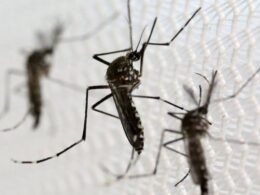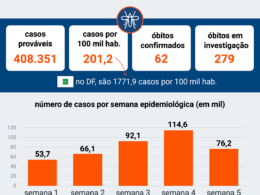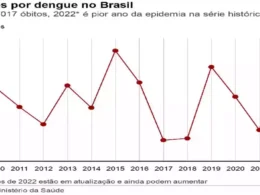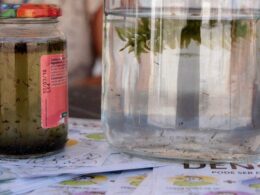the health transformation
portal
Joaquim Cardoso MSc
February 26, 2024
What is the message
Brazil is currently facing a significant surge in dengue fever cases, attributed to climate change and the El Niño weather pattern.
This has led to health emergencies and an epidemic declaration in several states.
In response, Brazil has begun distributing a new vaccine, Qdenga, primarily to children aged 10–14. The health minister has emphasized the need for unity and intensified care and prevention against dengue.
The introduction of the vaccine is seen as a significant scientific achievement in combating dengue epidemics.
Executive Summary
Brazil is currently facing a significant increase in dengue fever cases, with the number of infections more than quadrupling from last year’s rates.
The country has reported over 700,000 cases so far this year, a sharp rise from the 165,000 cases in the same period of 2023.
The health ministry has warned that the number of dengue cases could reach a record 5 million in 2024, a more than threefold increase from the 1.65 million cases recorded last year.
Examples and Statistics
The surge in dengue cases has prompted several states to declare health emergencies and the Rio de Janeiro government to declare an epidemic. The disease, which is transmitted by mosquitoes, can cause high fever, muscle pain, and internal bleeding. More than 100 deaths have been reported from the virus this year.
Conclusions
The sharp increase in dengue cases is attributed to warmer weather from climate change and the El Niño weather pattern. Health officials have said that rising global temperatures will allow the mosquitoes that carry the virus to thrive for longer.
Recommendations
In response to the crisis, Brazil has begun distributing a new vaccine against dengue fever, produced by the Japanese pharmaceutical group Takeda. Known as Qdenga, the vaccine has an efficacy rate of 80.2% and consists of two shots with a three-month interval between them.
The vaccine is primarily being administered to children between the ages of 10 and 14 due to supply bottlenecks.
The São Paulo-based Butantan Institute has also developed a vaccine, but it has yet to be approved by regulators. Brazil’s health minister, Nísia Trindade, has emphasized the need for unity against dengue and the importance of intensifying care and prevention. She also highlighted the significance of the new vaccine as a scientific achievement in the fight against dengue epidemics. Brazil is the first country to incorporate a dengue vaccine into its free public health system.
Source — Adapted from the Financial Times












